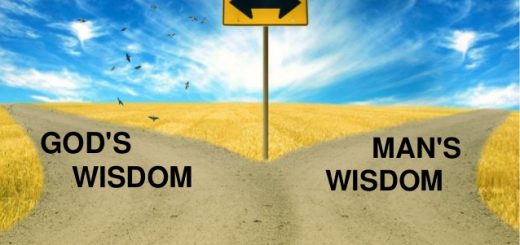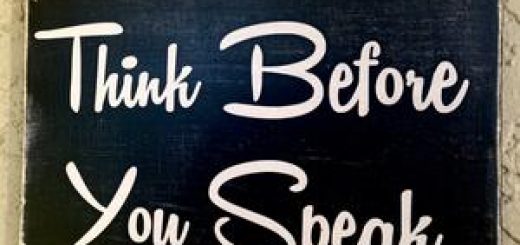Rules on Social Responsibility, Justice and Mercy
From the middle of Exodus 22 to the middle of Exodus 23, a whole set of rules about social responsibility, justice and mercy are laid out. And there are some key themes that come through.
First, we need to treat foreigners fairly.
Do not mistreat or oppress a foreigner, for you were foreigners in Egypt. Exodus 22:21
Do not oppress a foreigner; you yourselves know how it feels to be foreigners, because you were foreigners in Egypt. Exodus 23:9
New York, New York may be so good they named it twice, but mistreating foreigners is so bad, God spells it out twice in these two chapters. God’s message is clear – remember what you went through and don’t do the same.
Of course, few of us would ever directly confront a foreigner and oppress them with our words or our actions. But how many times a day do we unwittingly do it?
Each time we buy a product without ethical credentials, are we oppressing workers in distant places?
Each time we buy cheap English veg, are we contributing to a culture that thinks it’s OK to pay the poorest the migrant workers the lowest levels of pay?
Each time we circulate a Britain First Facebook post, a Daily Mail editorial or a piece of UKIP comment that starts “I am not a racist but…” are we not condoning the sentiment and allowing the verbal abuse of “foreigners” to become socially acceptable?
We need to remind and educate ourselves on the unintentional consequences of our unthinking behaviour.
Second, we must never take advantage of the powerless, the widow and the fatherless.
Do not take advantage of the widow or the fatherless. Exodus 22:22
Culturally, again, we would never directly harm the person who has lost their husband or their father, but do it we do it unintentionally too? Do we create a culture where everyone who receives “benefits” is vilified in the press as scroungers?
Many benefits go unclaimed each year, because people are “too proud” and don’t want to called scroungers. It is sad that people are vilified so much that the safety net that society feels is their right, is actually made, for some, socially unacceptable to receive.
Third we have the theme of lending.
“If you lend money to one of my people among you who is needy, do not treat it like a business deal; charge no interest. If you take your neighbour’s cloak as a pledge, return it by sunset, because that cloak is the only covering your neighbour has. What else can they sleep in? When they cry out to me, I will hear, for I am compassionate. Exodus 22:22,26-27
In world where Wonga charges more than 5000% interest if you were to borrow for a year, we have basically said to business, you can charge what you like and the more desperate people are, the more you can rip them off.
It is no wonder that fairness in short term lending has become a key theme and challenge for the church this year. Why not join a local credit union? Every £1 you invest is a £1 that someone local to you can borrow at much, much lower interest rates.
Finally, there is a section on honesty.
Do not spread false reports. Do not help a guilty person by being a malicious witness. Exodus 22:31
Do not follow the crowd in doing wrong. When you give testimony in a lawsuit, do not pervert justice by siding with the crowd, Do not deny justice to your poor people in their lawsuits. 7 Have nothing to do with a false charge and do not put an innocent or honest person to death, for I will not acquit the guilty. Do not accept a bribe, for a bribe blinds those who see and twists the words of the innocent. Exodus 23: 2, 6 and 8
Be honest in your dealings with the law, each other and those who are vulnerable. The point about bribes is an interesting one too. Again few of us would ever come into contact with situations where a bribe is required to gain access to local goods and services, but are we at risk of inducements on occasions?
In the workplace things are not so clear.
Does the fact that a supplier gives you a crate of spirits of every Christmas make you less likely to change suppliers?
Does the fact that an agency you use takes you to see your favourite team every season make you less likely to retender the business?
And sometimes things are even more blatant. “Buy £100 of stationery this month and get a free mountain bike” There is generally no business need for a free mountain bike so does the office manager simply take it home? If so, that is a bribe in my view. Can you really say that a free personal gift has made no difference to your action or inaction around a supplier?
Or how about a free remote control helicopter when you buy stationery?
Or free Swizzel Sweets when you buy archive boxes?
Of course, the passages also some have some weird and wonderful rules that seem barbaric to us or at least the punishment does. Sacrificing animals, stoning sorceresses, being put to death for bestiality and complete intolerance to worshipping other gods. Barbaric as these seem, we need to look at the context. Within hours of being rescued from Egypt, the people were ready to go back. This is a people in transition. A people on a spiritual journey as well the physical journey. It will not take much to set them back. So God seeks to keep them pure with punitive rules. These are punishments that certainly do not apply in our context today.
So our challenge for us today is to:
- Live like we are all made equal under God
- Be honest and above reproach in all our actions
- Support a culture where borrowing is cheap even to the most vulnerable
- Challenge a culture where personal inducements of gifts and activities are seen as OK.
Am I right or are my conclusions too harsh for a society where we need to more flexible to fit in?













Wise words Andy. But sadly would go down like a bag of hammers in the current climate.